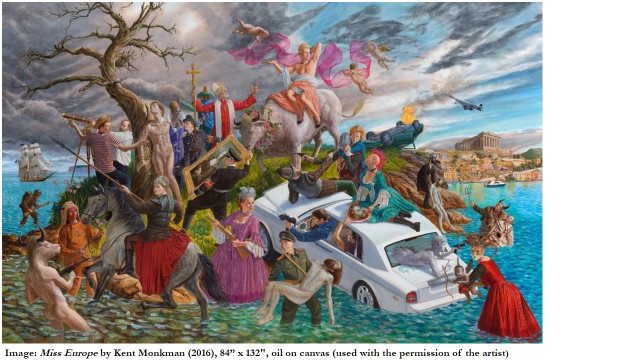From one colonial language to another: Translating Natasha Kanapé Fontaine’s “Mes lames de tannage”
DOI:
https://doi.org/10.21992/tc29378Keywords:
Translation, Indigenous literature, Quebec, Kanapé Fontaine, decolonizationAbstract
Signed and posted to the internet on July 6, 2012 in the months following the “Printemps érable” and leading up to Idle No More, “Mes lames de tannage” is one of Natasha Kanapé Fontaine’s most important slams. In analysing my English translation of this slam, published in Canadian Literature in 2016, this essay speaks to the relationship between Indigenous literatures and European languages. It participates in a conversation about what it means to translate French-language Indigenous literature from Quebec into English. Such translation enables Indigenous writers across North America to make links with each other and foster a broader interpretive community for their writing. Given the flow of Indigenous literature and critical thought from English into French over the past decades, thanks to publishing houses in France, the recent wave of translations from French into English and the sharing of French-language work mark a significant shift in the field. At the same time, the gesture of translating into English a writer who works primarily in French but is in the process of relearning her maternal language, Innu-aimun, brings to the fore all the pitfalls of moving from one colonial language to another. The challenge for translation is not to lose sight of Kanapé Fontaine’s relationship to French and especially, the way she lends it her voice. In the slam, French is a language of contestation but also of collaboration. Drawing on what she calls a “poetics of relation to the land,” Kanapé Fontaine works toward a respectful cohabitation of the territory. In this context, my strategies of including the French alongside the English and leaving words un-translated aim to disrupt the English version, expose the mediating work of the settler-translator and turn attention to Kanapé Fontaine’s mobilization of French for a writing of decolonization.Downloads
Published
Issue
Section
License
Authors who publish with this journal agree to the following terms: a.Authors retain copyright and grant the journal right of first publication with the work simultaneously licensed under a Creative Commons Attribution License that allows others to share the work with an acknowledgement of the work's authorship and initial publication in this journal. b.Authors are able to enter into separate, additional contractual arrangements for the non-exclusive distribution of the journal's published version of the work (e.g., post it to an institutional repository or publish it in a book), with an acknowledgement of its initial publication in this journal. c.Authors are permitted and encouraged to post their work online (e.g., in institutional repositories or on their website) prior to and during the submission process, as it can lead to productive exchanges, as well as earlier and greater citation of published work (See The Effect of Open Access).



